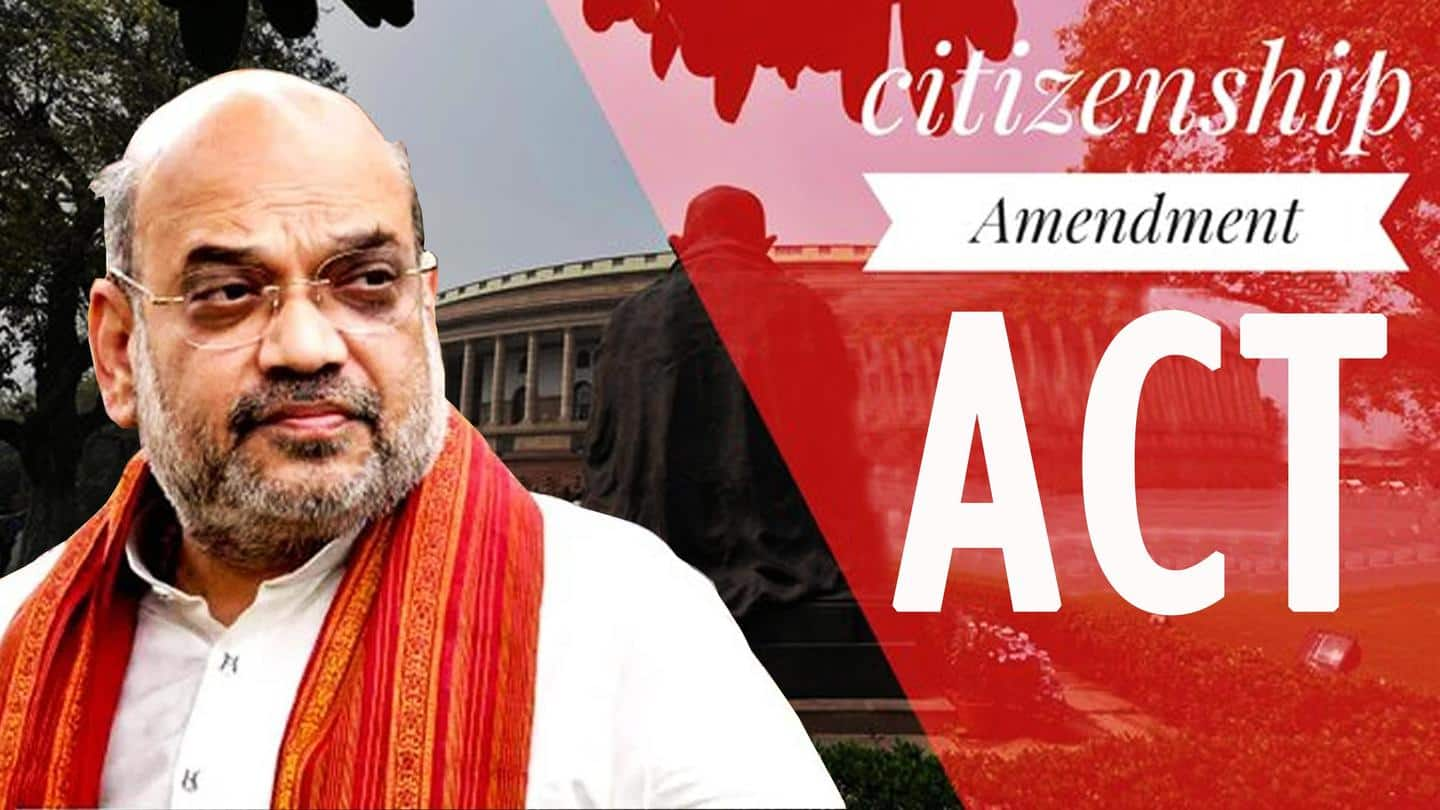
CAA rules delayed further; Home Ministry seeks 6 months more
What's the story
The Ministry of Home Affairs (MHA) has requested an extension of six months to prepare the rules of the Citizenship (Amendment) Act of 2019 (CAA).
The MHA has presented its request before the subordinate committees on parliamentary legislation in the Lok Sabha and Rajya Sabha.
The CAA aims to grant expedited citizenship to members of six non-Muslim undocumented minorities of Pakistan, Bangladesh, and Afghanistan.
Context
Why does this story matter?
The CAA cannot be implemented until its rules are published and notified.
This is the fifth time the MHA—led by Bharatiya Janata Party (BJP) leader and Home Minister Amit Shah—sought an extension to frame the rules.
In 2020, the home ministry had said the process was getting delayed due to the COVID-19 pandemic and that it would be undertaken after the vaccination drive begins.
Extensions
Details of extensions sought previously
The CAA had received presidential assent on December 12, 2019, after it got Parliament's approval.
Previously, the MHA had requested time until April 9, 2021, to draft CAA rules.
It was then extended until July 9, 2021.
A request was made to further extend the period to January 9, 2022, then April 9, and now till October 9 to notify and publish the rules.
Information
Approval must from the parliamentary committee
As per the Manual on Parliamentary Work, if ministries/departments are unable to formulate the regulations within the stipulated term of six months after the legislation is approved, "they should seek [an] extension of time from the Committee on Subordinate Legislation stating reasons for such extension."
Details
What are the provisions in CAA?
Members of six minority religious communities—Hindu, Sikh, Buddhist, Jain, Parsi, and Christian—from Pakistan, Afghanistan, and Bangladesh who entered India before December 31, 2014, are eligible for Indian citizenship under the CAA.
The process for citizenship will be entirely online, the MHA had earlier said.
The law exempts members of these six groups from prosecution under the Foreigners Act, 1946, and the Passport Act, 1920.
Protests
Anti-CAA movement in 2019-20
Between December 2019 and March 2020, the CAA provoked violent demonstrations and rioting across India, killing 83 people in Assam, Delhi, Karnataka, Meghalaya, and Uttar Pradesh.
Residents complained that allowing visitors from other countries would jeopardize the delicate demography in border areas.
The anti-CAA demonstrations shook Delhi in February 2020 as a days-long communal riot killed over 50 people and injured hundreds more.